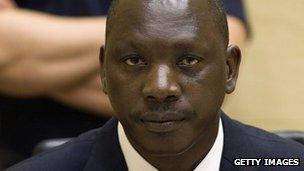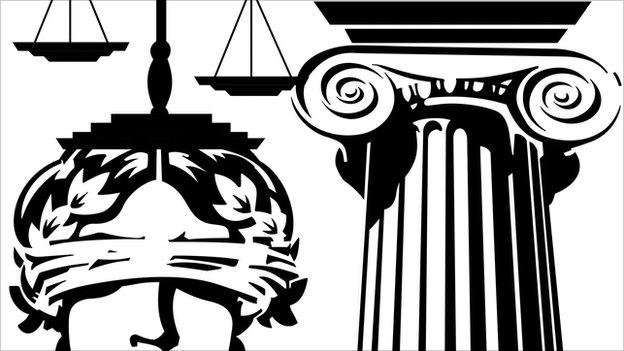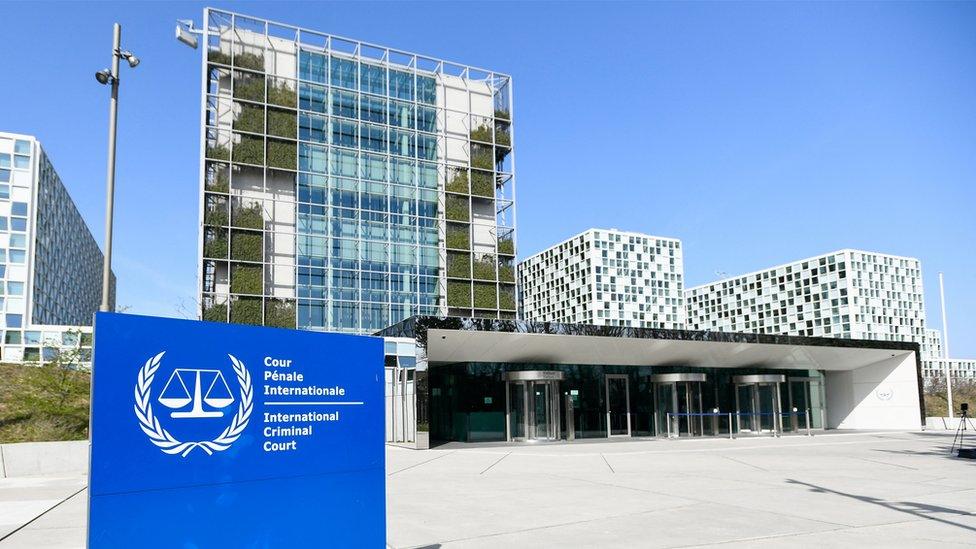Profile: DR Congo militia leader Thomas Lubanga
- Published

Thomas Lubanga was arrested by UN peacekeepers in 2005 and sent to stand trial in The Hague
Thomas Lubanga led the Union of Congolese Patriots (UPC), an ethnic Hema militia which was active in the war that started in the Ituri region in north-eastern Democratic Republic of Congo in 1999.
The International Criminal Court has convicted him of recruiting and sending children under 15 years old to the battlefield and sentenced him to 14 years in prison.
The military wing of the UPC, the Patriotic Forces for the Liberation of Congo (FPLC), was one of six militia groups which fought for control of the gold-rich Ituri region until 2003.
This was a local conflict within the wider DR Congo war, which left an estimated five million people dead - mostly from hunger and disease.
The Ituri conflict, which began as a struggle for the control of land and resources, deteriorated as arms proliferated and members of the Ugandan army became involved.
This turned a local dispute into a battle between the Hema and Lendu communities which killed an estimated 50,000 people and left hundreds of thousands homeless.
In 2002, his Ugandan-backed forces seized the Ituri capital, Bunia, after fighting in which many civilians were killed.
The UPC leader's fortunes begun to fade in the summer of 2003.
Massacre
The war in Ituri was ignored by the Congolese peace process, which led to the official end of the overall DR Congo conflict.
So the European Union approved the sending of French troops to Bunia - the first time the EU deployed peacekeeping troops outside Europe.
Lubanga, who had allegedly masterminded the massacre of more than 400 people, started to lose his grip on the region very quickly.
The UPC leader, born in 1960, once told a UN mission: "What is important is to judge each group on its actions. Those who have committed genocide or massacres have to be punished."
He was referring to other militia groups that he held responsible for the atrocities committed in Ituri and has always denied recruiting child soldiers.
In March 2005, he was arrested by UN peacekeepers, along with other militiamen.
Lubanga was first put up and guarded in one of Kinshasa's most luxurious hotels.
But after a few months, he was transferred to Kinshasa's central jail.
In March 2006, as he waved goodbye to Congolese soil for possibly the last time, he cried as he boarded a French army plane that flew him to The Hague where the ICC is based.
He is married with seven children and has a degree in psychology from the University of Kisangani.
- Published14 March 2012
- Published14 March 2012

- Published7 February
